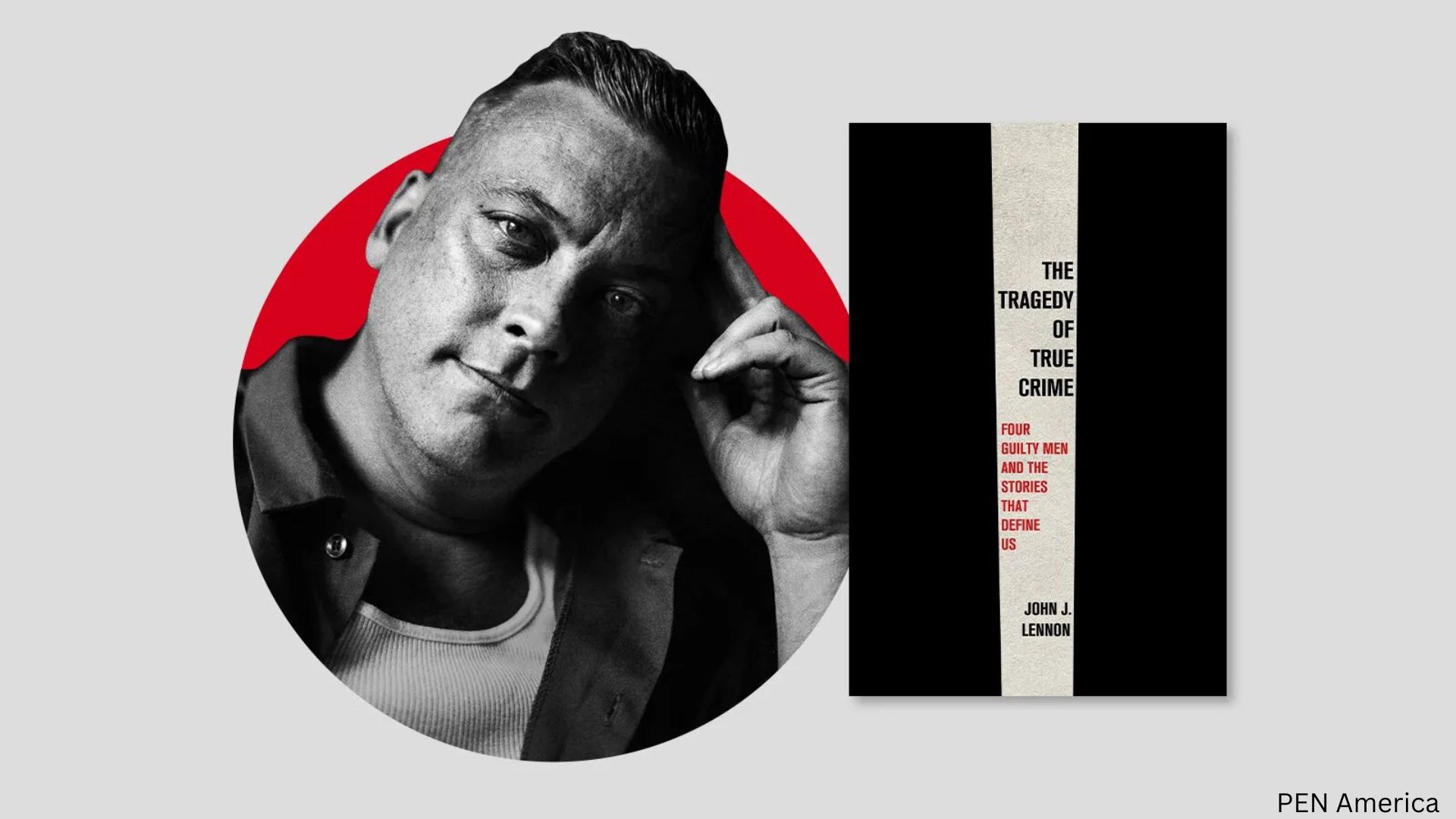John J. Lennon | The PEN Ten Interview
In his latest work, The Tragedy of True Crime (Celadon Books, 2025), John J. Lennon presents a fresh perspective on the true crime genre. The book weaves together the stories of four men who committed murder, exploring not only the crimes themselves but also the personal histories, motivations, and systemic factors that shaped their actions. Lennon’s background as a prison journalist allows him to illuminate the nuance often lost in one-dimensional accounts of criminal behavior.
During a PEN Ten interview with Madison Markham, coordinator of PEN America’s Freedom to Read program, Lennon reflected on his experiences writing a novel while incarcerated. He described the process as both challenging and transformative, offering insight into the prison system while exploring broader questions about morality, justice, and storytelling.
Writing From Inside
Lennon shared that much of the novel’s depth comes from his direct experiences in prisons and close interactions with incarcerated individuals. “Being in that environment gives you access to perspectives that rarely reach the public,” he noted. “I wanted readers to see beyond the crime itself and understand the human elements that are so often omitted.”
He discussed how his journalistic background helped him approach each subject with care, seeking to balance empathy with critical observation. This approach allows readers to engage with the story on multiple levels, considering not only the acts committed but also the social, psychological, and economic circumstances that influence behavior.
Challenges and Insights
Writing from prison presented unique logistical and emotional challenges. Lennon had limited access to research materials and often had to rely on personal observation and interviews with fellow inmates. Despite these constraints, he described the process as deeply rewarding, allowing him to refine his narrative voice and bring authenticity to the stories he tells.
Lennon emphasized that his goal was not to excuse criminal behavior but to deepen understanding. “When we reduce true crime to sensational headlines or grotesque details, we lose sight of the larger human story,” he explained. “This book is about giving voice to what is often ignored—context, nuance, and consequence.”
Reader Takeaways
Lennon hopes readers will come away with a more complex understanding of crime and justice. He encourages audiences to consider the systemic inequalities, mental health struggles, and societal pressures that intersect with individual choices. By doing so, he aims to foster empathy without diminishing accountability.
In addition, Lennon highlighted the importance of storytelling in shaping public perception. True crime, he argues, carries an ethical responsibility: the stories we tell can either reinforce stereotypes or challenge readers to confront uncomfortable truths.
Broader Implications for True Crime
The Tragedy of True Crime contributes to a growing movement in the genre that prioritizes depth, analysis, and ethical engagement over mere sensationalism. By combining firsthand experience, journalistic rigor, and literary skill, Lennon offers a model for how writers can approach true crime with both honesty and humanity.
The PEN Ten interview underscores the potential of literature to bridge divides, offering readers an opportunity to engage with difficult topics thoughtfully. Lennon’s work reminds us that behind every headline is a complex human story, and understanding that complexity is essential to meaningful dialogue about crime, punishment, and society.
%20(4).png)




.jpg)
.png)
.png)
.png)
